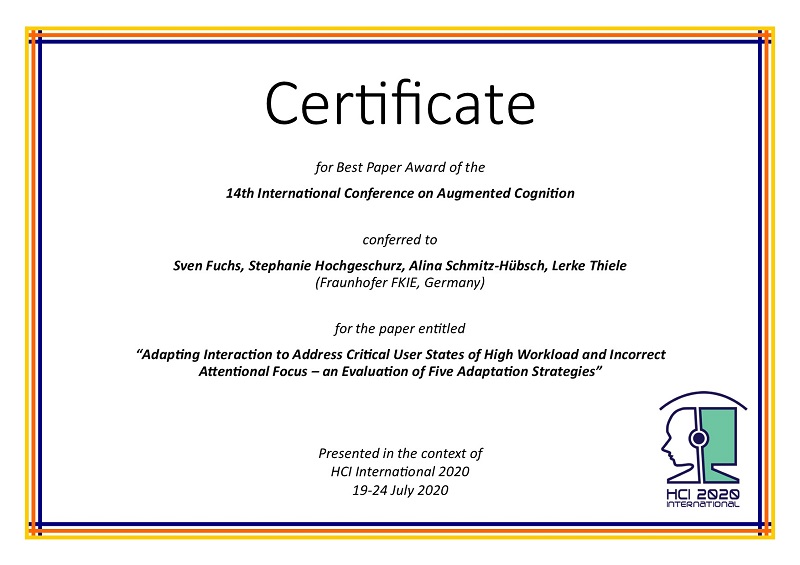
Certificate for Best Paper Award of the 14th International Conference on Augmented Cognition
The award has been conferred to
Sven Fuchs, Stephanie Hochgeschurz, Alina Schmitz-Hübsch, Lerke Thiele
(Fraunhofer Institute for Communication, Information Processing and Ergonomics FKIE, Germany)

Sven Fuchs
(presenter)
for the paper entitled
"Adapting Interaction to Address Critical User States of High Workload and Incorrect Attentional Focus – an Evaluation of Five Adaptation Strategies"
Presented in the context of
HCI International 2020
19-24 July 2020
Paper Abstract
"We have developed an approach to Dynamic Adaptation Management in Augmented Cognition systems that processes task and operator state indicators to dynamically select and configure context-sensitive adaptation strategies in real time. This dynamic approach is expected to avoid much of the potential cognitive cost associated with adaptations. Following an overview of our conceptual approach and the description of a proof-of-concept implementation in the anti-air warfare domain, this paper describes the conceptualization and operationalization of five adaptation strategies: Context-Sensitive Help, Automation, Scheduling, Visual Cueing, and Decluttering. These strategies were designed to address two critical user state diagnoses – high workload and incorrect attentional focus. We then report an experiment that evaluated each strategy’s impact on those two critical states. Twenty-four participants (18m/6f) took part in the lab-based experiment and performed a naval air surveillance task in six different conditions (five adaptation conditions and one control condition). Two adaptation strategies significantly reduced the average duration of critical state episodes. Two other adaptation strategies also showed promising trends for being effective in addressing the cognitive state problems."
The full paper is available through SpringerLink, provided that you have proper access rights.